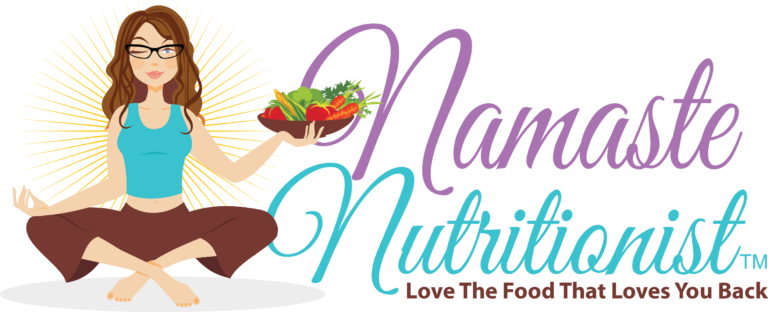“All disease begins in the gut.” – Hippocrates
My clients know that I LOOOOOVE talking guts! The art and science of digestive health is really, really interesting, especially as our knowledge of it grows through research. Our guts are dynamic and impact every other system in our bodies.
Unfortunately, digestive problems poop on a lot of people’s parties. Of the many things that can go functionally awry with your guts, inflammatory bowel diseases are growing in popularity. Nutrition should not be ignored in this, or any other, digestive situation.
Crohn’s Disease is a serious, and manageable, inflammatory bowel disease.
Understanding just how to eat with Crohn’s can be really confusing, as it’s so totally individual. [ctt title=”Nutrition matters for those with Crohn’s Disease. Take time to learn your needs. (Can you share this?)” tweet=”Nutrition matters for those with #CrohnsDisease. Take time to learn your needs. @FrancesLArnold http://ctt.ec/D15iw+ #digestion #IBD” coverup=”D15iw”]
You’ll get more mileage by working with a very well trained, licensed clinician who understands (at a minimum) nutrition, gut health, biomarkers, and supplements. This person should have years of high-level training. S/he should be able to personalize general health ideals and help meet your specific goals and needs. I recommend working with a Registered Dietitian Nutritionist (RDN) or a Certified Nutrition Specialist (CNS) who understands inflammatory bowel diseases very well.
Here’s the highlight reel of what Dianne Rishikof, MS, RDN, and I review in this podcast:
How does Crohn’s develop?
- Genetic component, immune triggers, inflammatory response (infection, bad diet, smoking, medications microbiome). Caffeine, alcohol, and gluten can induce leaky gut in people who are sensitive
- What role does dysbiosis play? Is it the chicken or egg
- Where does intestinal permeability (leaky gut) fit into this picture?
Nutrients and common deficiencies in Crohn’s:
- Protein and calories are generally needed more
- B12 absorption may be compromised (absorbed in ileum)
- If there is diarrhea, restore electrolytes
- If there is fat malabsorption, vitamins A, E, K, D will be compromised. Digestive enzymes can really help.
- Anemia may develop, making iron low
- If steroids are used, this can affect absorption of Calcium, Vitamin D
- Problems with the Standard American Diet in Crohn’s
Nutrition advice for flare-ups
- Reduce fiber, raw veggies, popcorn will hurt
- Discover your individual needs – some people can’t tolerate dairy or legumes, while others can, for example.
- Intestinal narrowing or strictures can increase risks for blockage, esp with fibrous foods
- AVOID: smoking, ETOH, caffeine
Nutrition to manage symptoms
- Healing diet: broth, supplements, gelatin powder or bone broth, L-glutamine (absorption?), zinc, vit C, vit E, colostrum
- Rule out food sensitivities
- Rule out if there is SIBO (small intestine bacterial overgrowth)
Probiotics to help manage symptoms
- Probiotics create a healthy gut environment and immune system
- L-rhamnosus, S-boulardii
- SIBO on top of Crohns – address SIBO
Today’s Guest Expert:
 Dianne Rishikof, MS, RDN, LDN is an integrative and functional nutritionist, specializing in digestive health. She has healed herself through focusing on the Microbiome and leaky gut (instead of just what to eat and what not to eat). In fact, she’s created her own supplements line. One blend is for gut healing, called “heal your gut” She also has an anti inflammatory blend that’s great for people with IBS because of the oxidative damage to cells affected by inflammation. She can be found at www.diannerishikof.com
Dianne Rishikof, MS, RDN, LDN is an integrative and functional nutritionist, specializing in digestive health. She has healed herself through focusing on the Microbiome and leaky gut (instead of just what to eat and what not to eat). In fact, she’s created her own supplements line. One blend is for gut healing, called “heal your gut” She also has an anti inflammatory blend that’s great for people with IBS because of the oxidative damage to cells affected by inflammation. She can be found at www.diannerishikof.com
Dianne’s Supplements: Health Takes Guts
www.miramix.com/brands/health-takes-guts/
Podcast: Play in new window | Download


4 responses to “Nutrition Therapy for Crohn’s Disease”
Very interesting. Thanks for sharing.
I know a couple of people with Crohns and this will be very helpful to them.
I love this post. Very detailed information about Crohn’s disease. Thanks for sharing.
I’m so glad it helped, Martha! =0)